Filter by

A Coat of Many Colors : Dress Culture in the Young State of Israel
A Coat of Many Colors investigates Israel's first seven years as a sovereign state through the unusual prism of dress. Clothes worn by Israelis in the 1950s reflected political ideologies, economic conditions, military priorities, social distinctions, and cultural preferences, and all played a part in consolidating a new national identity. Based on a wide range of textual and visual historical …
- Edition
- -
- ISBN/ISSN
- 9781644693261
- Collation
- 300 hlm
- Series Title
- -
- Call Number
- -
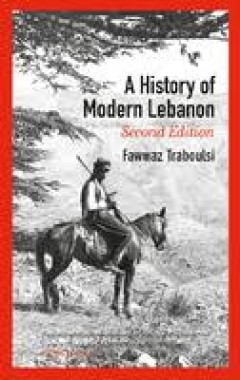
A History of Modern Lebanon - Second Edition
This is the second updated edition of the first comprehensive history of Lebanon in the modern period. Written by a leading Lebanese scholar, and based on previously inaccessible archives, it is a fascinating and beautifully-written account of one of the world's most fabled countries. Starting with the formation of Ottoman Lebanon in the 16th century, Traboulsi covers the growth of Beirut as a…
- Edition
- -
- ISBN/ISSN
- 9781849647281
- Collation
- 320 hlm
- Series Title
- -
- Call Number
- -
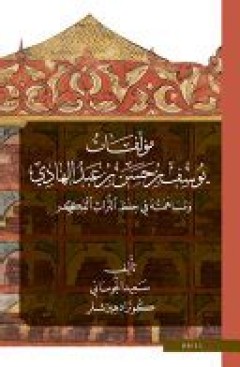
مؤلّفات يوسف بن حسن بن عبد الهادي ومساهمته…
On the basis of a newly discovered manuscript this book offers the most comprehensive bibliography of the enormous output of the fifteenth-century scholar Ibn ʿAbd al-Hādī – enlarging our view of his scholarly contribution and correcting numerous mistakes in this regard. This book is thus essential reading for all those interested in the writerly world of Damascus and the scholarly world o…
- Edition
- -
- ISBN/ISSN
- 9789004462922
- Collation
- 580 hlm; ill., lamp.,
- Series Title
- الحضارة العربية والإسلامية, Volume: 02
- Call Number
- -

The Teaching and Learning of Arabic in Early Modern Europe
This volume brings together the leading experts in the history of European Oriental Studies. Their essays present a comprehensive history of the teaching and learning of Arabic in early modern Europe, covering a wide geographical area from southern to northern Europe and discussing the many ways and purposes for which the Arabic language was taught and studied by scholars, theologians, merchant…
- Edition
- -
- ISBN/ISSN
- 9789004338623
- Collation
- 366 hlm; ill., lamp.,
- Series Title
- The History of Oriental Studies, Volume: 3
- Call Number
- -
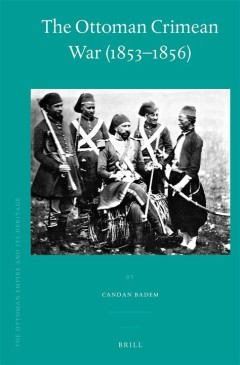
The Ottoman Crimean War (1853-1856)
The Crimean War was a defining event in both European and Ottoman history, but it has principally been studied from the Europeans’ point of view. This study analyzes the role of the Ottoman Empire in the Crimean War and the War’s impact on the Ottoman state and Ottoman society. Based on hitherto unused Ottoman and Russian sources, it offers new insights into the Crimean War’s financial, s…
- Edition
- -
- ISBN/ISSN
- 9789004190962
- Collation
- 448 hlm; ill., lamp.,
- Series Title
- Middle East, Islamic & African Studies The Ottoman Empire and its Heritage, Volume: 44 Brill's Paperback Collection
- Call Number
- -
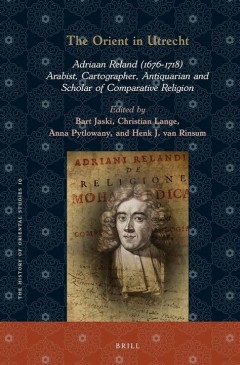
The Orient in Utrecht: Adriaan Reland (1676-1718), Arabist, Cartographer, Ant…
Adriaan Reland (1676-1718), Arabist, Cartographer, Antiquarian and Scholar of Comparative Religion covers the intellectual achievements of a remarkable man: Adriaan Reland, professor of Oriental languages (1701) and Hebrew Antiquities (1713) at the University of Utrecht from 1701 to 1718. Although he never travelled beyond the borders of his home country, he had an astonishingly broad worldview…
- Edition
- -
- ISBN/ISSN
- 9789004462175
- Collation
- 532 hlm; ill., lamp.,
- Series Title
- The History of Oriental Studies, Volume: 10
- Call Number
- -
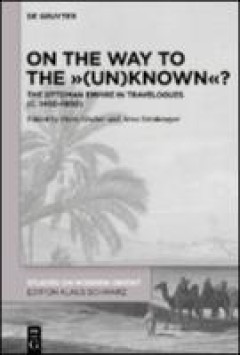
On the Way to the (Un)Known?: The Ottoman Empire in Travelogues (c. 1450-1900)
Twenty-two authors from various countries analyze travelogues on the Ottoman Empire between the fifteenth and the nineteenth centuries. The volume discusses questions of perceptions of "otherness", the circulation of knowledge, intermedial relations, gender roles, and explores possibilities and limits of digital analysis.
- Edition
- Ed. 1
- ISBN/ISSN
- 9783110698046, 9783110697605
- Collation
- 420
- Series Title
- Studies on Modern Orient, 36
- Call Number
- 297 ONT o

Al-Maqrīzī’s al-Ḫabar ʿan al-bašar, Vol. V, Section 4: Persia and Its…
Al-Maqrīzī's (d. 845/1442) last work, al-Ḫabar ʿan al-bašar, was completed a year before his death. This volume, edited by Jaakko Hämeen-Anttila, covers the history of pre-Islamic Iran from the Creation to the Parthians. Readership: All interested in Mamluk historiography or pre-Islamic history of Iran.
- Edition
- -
- ISBN/ISSN
- 9789004355996
- Collation
- -
- Series Title
- -
- Call Number
- -
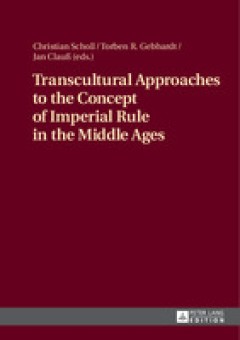
Transcultural Approaches to the Concept of Imperial Rule in the Middle Ages
During the Middle Ages, rulers from different regions aspired to an idea of imperial hegemony. On the other hand, there were rulers who deliberately refused to be «emperors», although their reign showed characteristics of imperial rule. The contributions in this volume ask for the reasons why some rulers such as Charlemagne strove for imperial titles, whereas others voluntarily shrank from th…
- Edition
- -
- ISBN/ISSN
- 9783631706244
- Collation
- -
- Series Title
- -
- Call Number
- -
 Computer Science, Information & General Works
Computer Science, Information & General Works  Philosophy & Psychology
Philosophy & Psychology  Religion
Religion  Social Sciences
Social Sciences  Language
Language  Pure Science
Pure Science  Applied Sciences
Applied Sciences  Art & Recreation
Art & Recreation  Literature
Literature  History & Geography
History & Geography